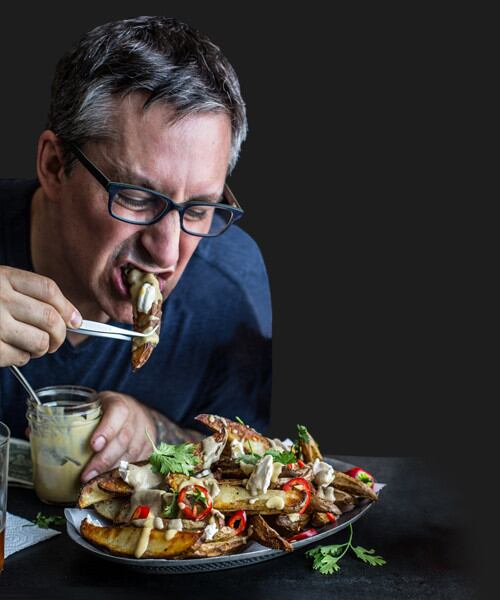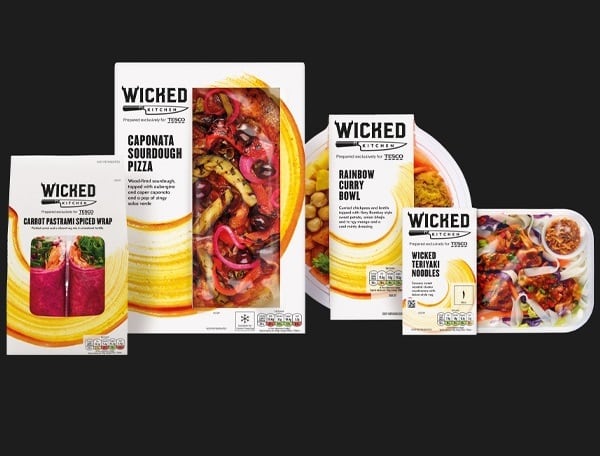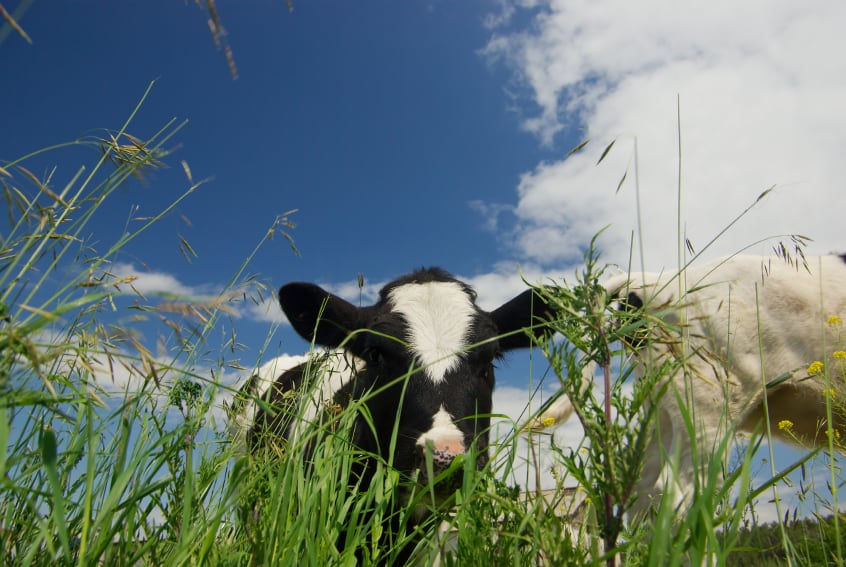Wicked Kitchen is the result of a collaboration between Wicked Healthy co-founders and brothers Derek and Chad Sarno, and the UK’s largest supermarket retailer Tesco.
In 2017, two years after switching to a vegan diet himself, Derek Sarno took on the role of executive chef and director of plant-based innovation for Tesco. The following year, the Wicked Kitchen brand launched in Tesco stores across the UK.
If the brief was to bring tasty, unpretentious vegan foods to market, the result, according to Sarno, is “the largest and most sexy, fresh, clean retail food in the world”.
Tesco’s most successful launch to date
The brand launched in 2018 with a 20-product-strong line of ready-to-eat meals, heat-to-eat chilled meals, sandwiches, and pizzas. A Moroccan-inspired Buddha Bowl was one such plant-based product to hit the shelves under the Wicked brand. The dish is made from turmeric bulgur wheat salad, spiced beetroot, pickled red cabbage and roasted red pepper hummus, and launched with an RRP of £3.50.
Six-months later, Wicked Kitchen bumped up the line with 25 additional products. Now, 20 months on, Tesco is preparing to launch a new range that will bring total product count up to 90. Since Wicked Kitchen’s inception chilled vegan foods at Tesco have increased by 25%.
More recent product launches include savoury pies, ‘sausage’ rolls, an expanded range of wood-fired sourdough pizzas, chilled sharing desserts and deli foods.
Consumer demand appears in line with such fast paced new product development: Wicked Kitchen doubled sales projections when it first launched. The brand has sold more than 10 million units of plant-based food and received more than 11m social media hits worldwide. “It was the most successful launch Tesco has had to date,” Sarno told delegates at the World Food Summit last week.
‘I publicly challenge everyone to compete with us’

Launching the Wicked Kitchen line prompted every other retailer to compete with Tesco in plant-based foods, said Sarno. And the plant-based innovation chief welcomes the rivalry. “I publicly challenge everyone to compete with us,” he confirmed.
The time is certainly ripe for plant-based innovation in the UK. According to a 2019 YouGouv survey, growing interest in health, animal welfare and the environmental impact of producing and consuming meat is altering eating habits.
Fourteen percent of respondents said they follow a flexitarian diet, which is more than those following a pescatarian, vegetarian, and vegan diet combined. Of the 73% of the population who identify as meat-eaters, more than one-quarter said they are actively trying to reduce their meat consumption.
It is this meat-eating audience that Wicked Kitchen is targeting. “We had close to one million customers in our first year. Ninety-three percent of those customers were flexitarians,” said Sarno. “We make vegan food for meat-eaters,” he added, stressing that his role as a chef means ‘leading with flavours’ to develop ‘delicious, affordable, accessible’ food that he wants to eat himself.
“We make cool f**king food” – Derek Sarno, executive chef and director of plant-based innovation for Tesco
Therefore the vegan market presents a big business opportunity, one that will be worth ‘billions of dollars’ in coming years, Sarno continued. “If we don’t fill the gap, someone else is going to do it.”
‘Act now’
At the Summit, where the chef was speaking for himself, rather than on behalf of any company, Sarno urged delegates to take action immediately, as a matter of urgency: “We need to transition to a plant-based diet now, not tomorrow.”
Indeed, the environmental impact of current food production is cause for alarm. The food system contributes 20-30% of global greenhouse gas emissions, with beef and dairy production two of the leading culprits.
“The next decade is going to be pivotal to the survival of the human race and for millions of species on the plant.
“It is hard at an individual level to move the needle,” he said, encouraging executives in the food sector to service the growing need for accessible and desirable animal alternatives. “We have the opportunity to affect the status quo.”





